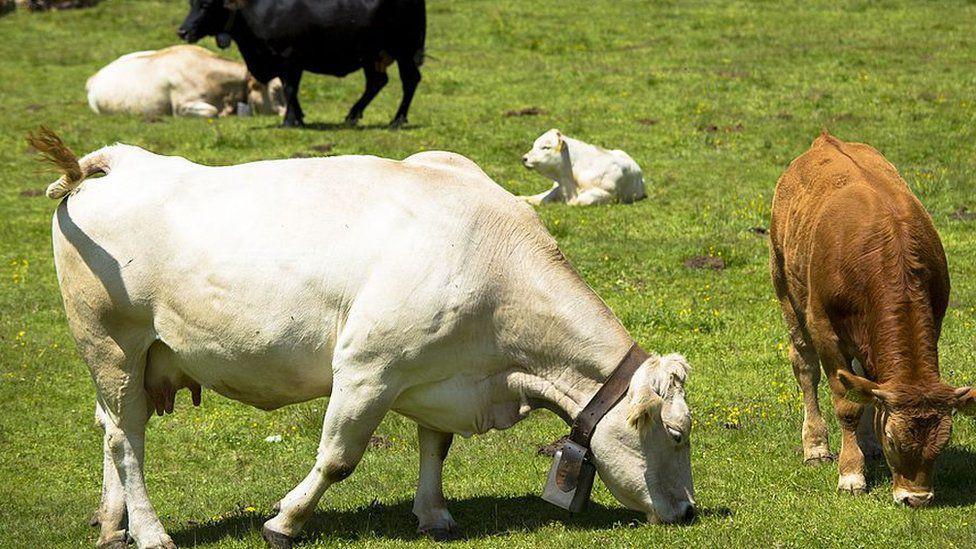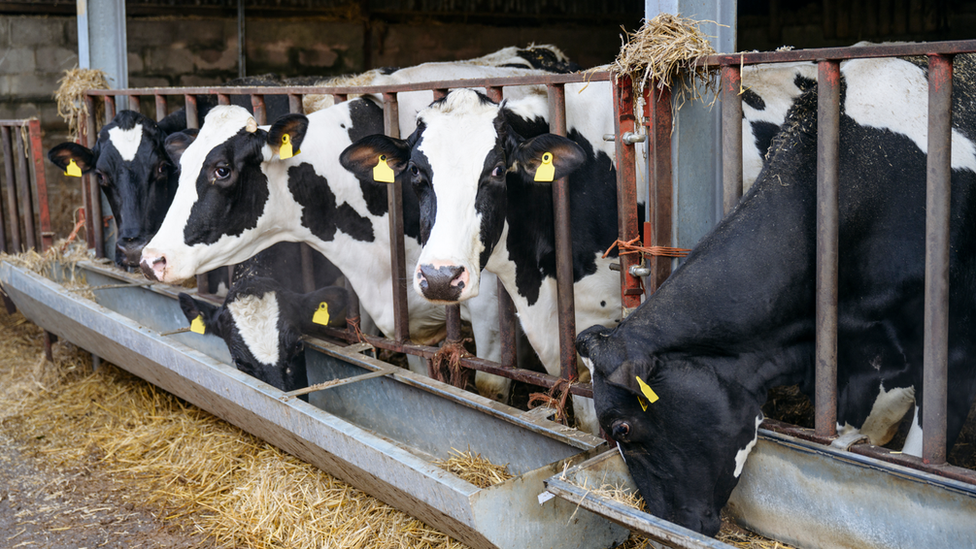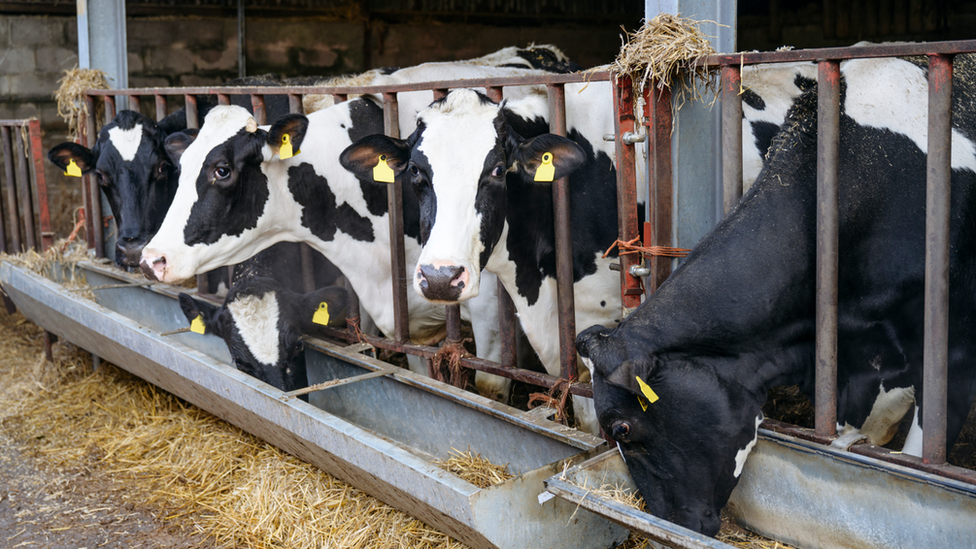Further bluetongue cases are identified in cattle

Alongside Kent, Norfolk, is the only part of England that has reported infections so far in this outbreak of bluetongue
- Published
Three more cases of the livestock disease bluetongue have been identified by government vets in Norfolk.
It followed the confirmation of two cases in cattle at a farm just outside Cantley, near Acle, on 9 December.
The Animal and Plant Health Agency (APHA) said the latest diagnoses were made within this area.
A 10km (6.2 mile) temporary control zone for moving livestock that was imposed earlier this month remained in place.
Bluetongue can cause infertility and breathing problems in sheep, cattle and goats.
It poses no risk to humans or the food chain, but outbreaks can result in prolonged trade and animal movement restrictions.

Bluetongue is a viral infection which affects animals such as cows and sheep
All five animals discovered to have had the disease would be humanely culled, the Department for Environment, Food and Rural Affairs (Defra) said.
Alongside Kent, Norfolk is the only part of England that has reported infections so far in this outbreak of bluetongue.
APHA is aware of 27 cases in total.
Farmers in Norfolk and the National Farmers Union have warned about a potential for bluetongue to become a major problem, external.
What is bluetongue?
Bluetongue was discovered for the first time in the UK since 2007 at a farm near Canterbury in Kent on 11 November.
It is spread by the bite of midges and could cause painful ulcers and swelling around the mouth and nostrils of animals.
Defra said the south and east of England were especially vulnerable due to winds carrying the insects across the Channel.
It urged all livestock owners to be vigilant and report any suspected cases.
Follow East of England news on Facebook, external, Instagram, external and X, external. Got a story? Email eastofenglandnews@bbc.co.uk, external or WhatsApp 0800 169 1830
Related topics
More on bluetongue
- Published9 December 2023

- Published27 November 2023
